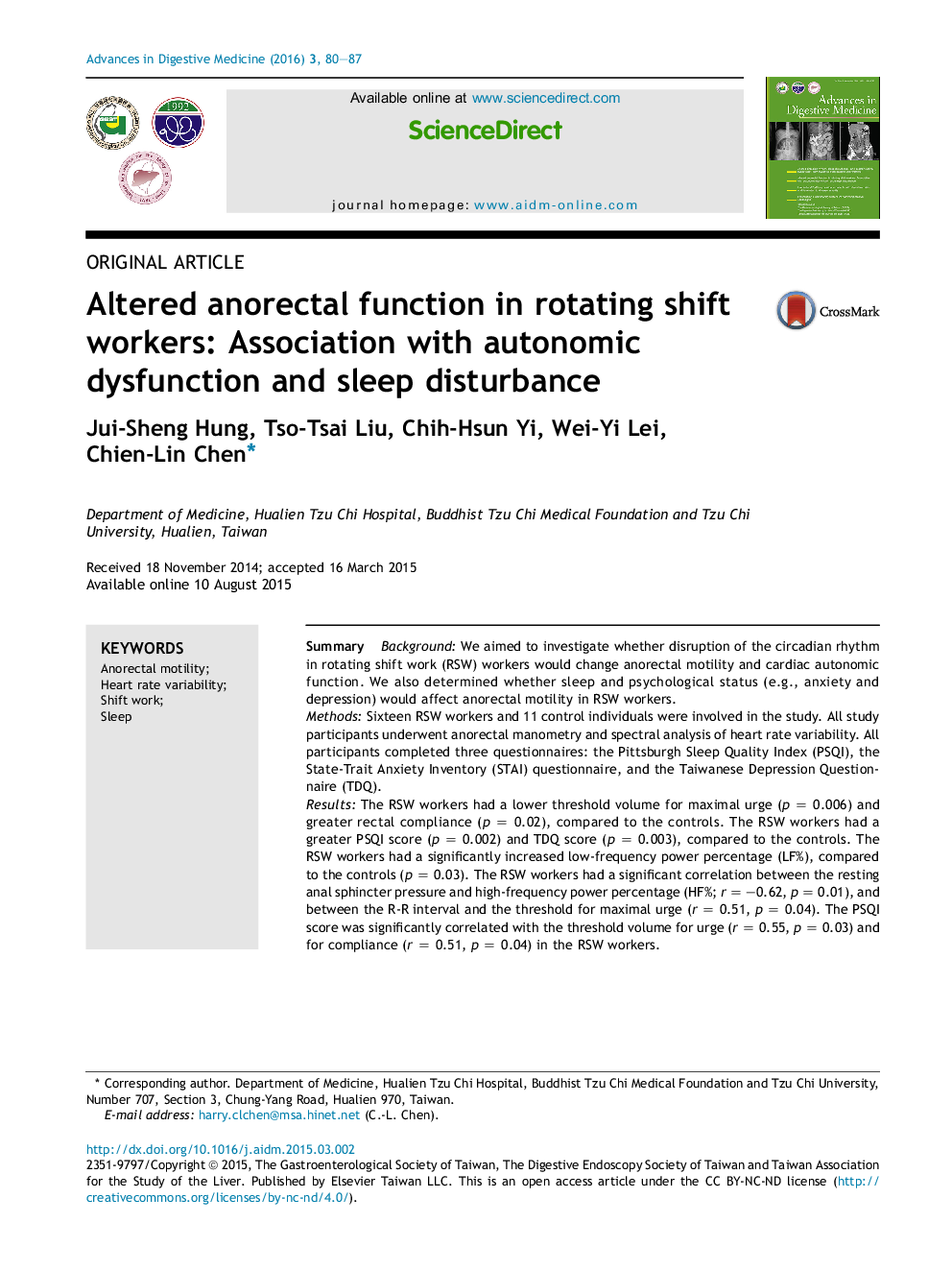| Article ID | Journal | Published Year | Pages | File Type |
|---|---|---|---|---|
| 3278497 | Advances in Digestive Medicine | 2016 | 8 Pages |
SummaryBackgroundWe aimed to investigate whether disruption of the circadian rhythm in rotating shift work (RSW) workers would change anorectal motility and cardiac autonomic function. We also determined whether sleep and psychological status (e.g., anxiety and depression) would affect anorectal motility in RSW workers.MethodsSixteen RSW workers and 11 control individuals were involved in the study. All study participants underwent anorectal manometry and spectral analysis of heart rate variability. All participants completed three questionnaires: the Pittsburgh Sleep Quality Index (PSQI), the State-Trait Anxiety Inventory (STAI) questionnaire, and the Taiwanese Depression Questionnaire (TDQ).ResultsThe RSW workers had a lower threshold volume for maximal urge (p = 0.006) and greater rectal compliance (p = 0.02), compared to the controls. The RSW workers had a greater PSQI score (p = 0.002) and TDQ score (p = 0.003), compared to the controls. The RSW workers had a significantly increased low-frequency power percentage (LF%), compared to the controls (p = 0.03). The RSW workers had a significant correlation between the resting anal sphincter pressure and high-frequency power percentage (HF%; r = –0.62, p = 0.01), and between the R-R interval and the threshold for maximal urge (r = 0.51, p = 0.04). The PSQI score was significantly correlated with the threshold volume for urge (r = 0.55, p = 0.03) and for compliance (r = 0.51, p = 0.04) in the RSW workers.ConclusionRotating shift workers have anorectal dysmotility and cardiac sympathetic hyperactivity. Anorectal dysmotility in RSW workers has a close relationship with cardiac autonomic dysfunction, sleep disturbance, and depression, but not with anxiety.
